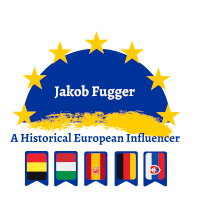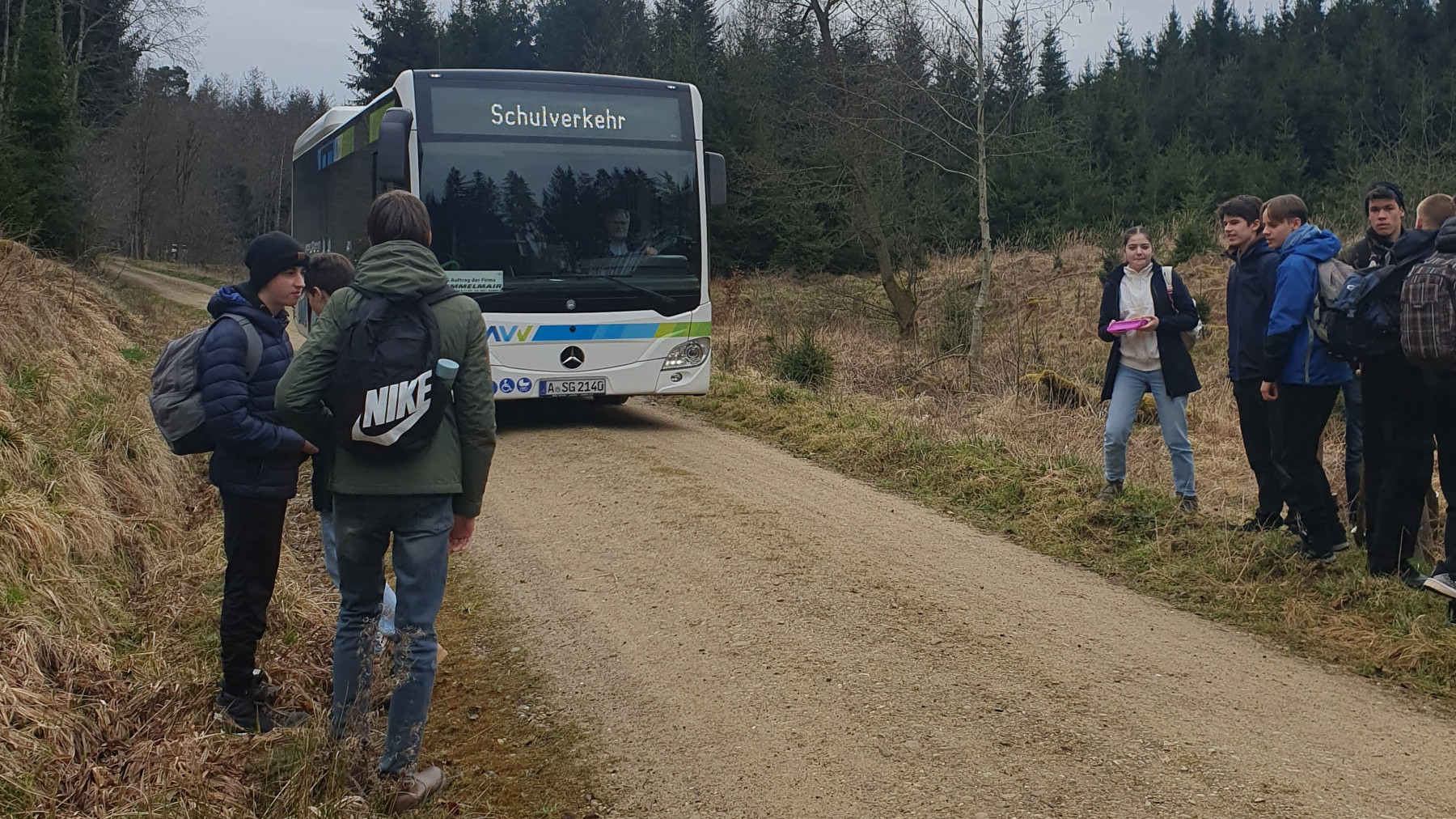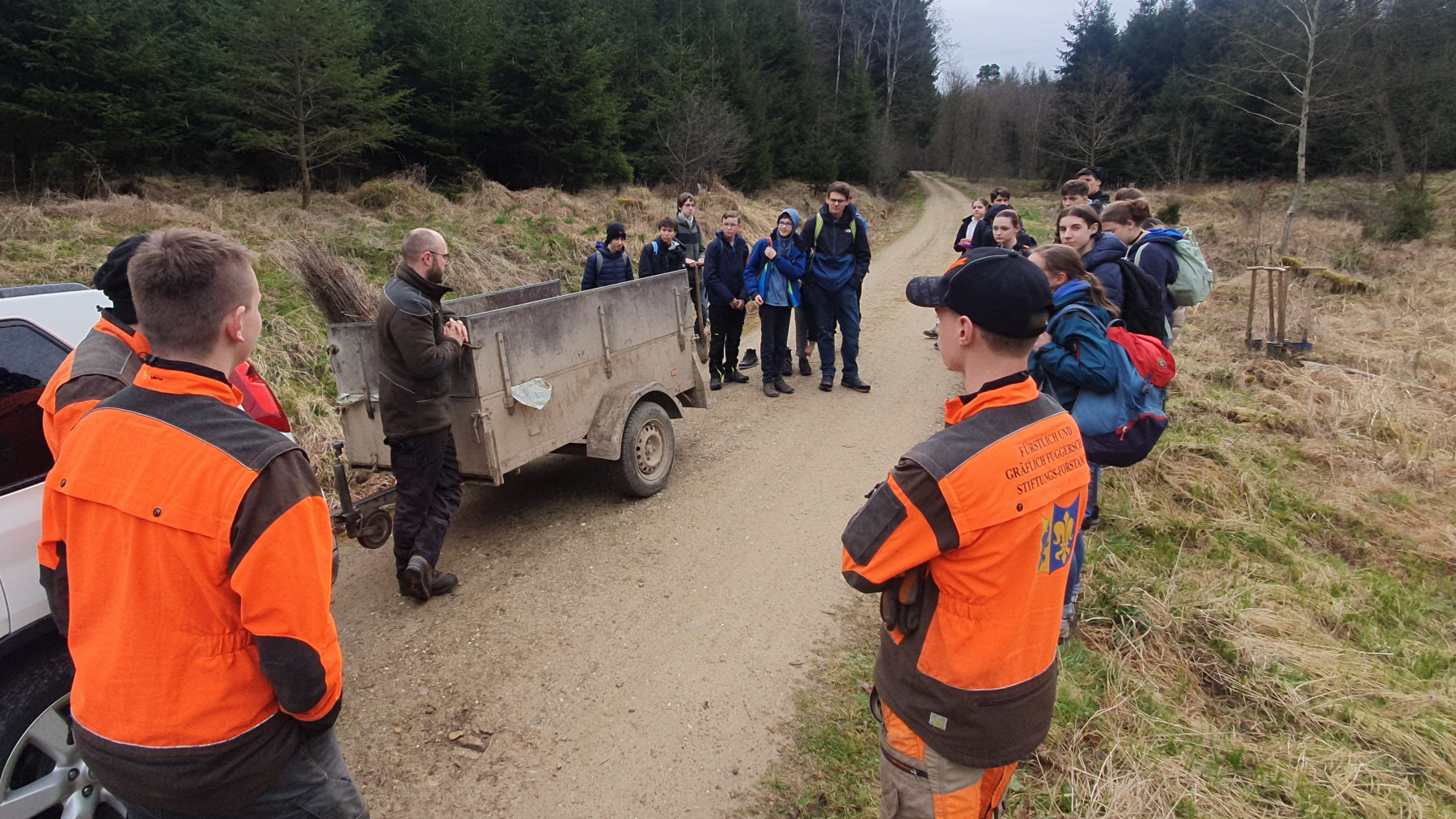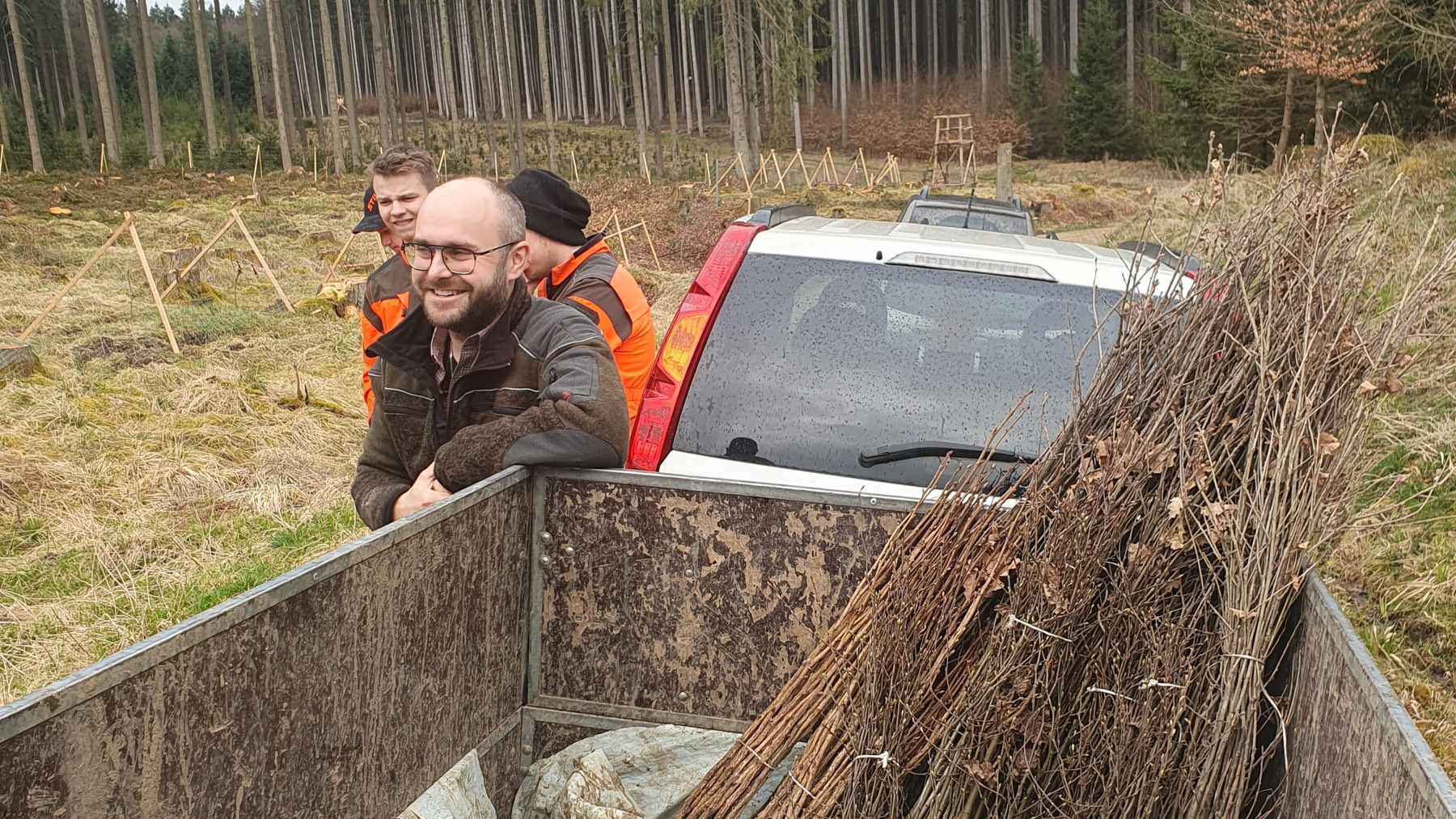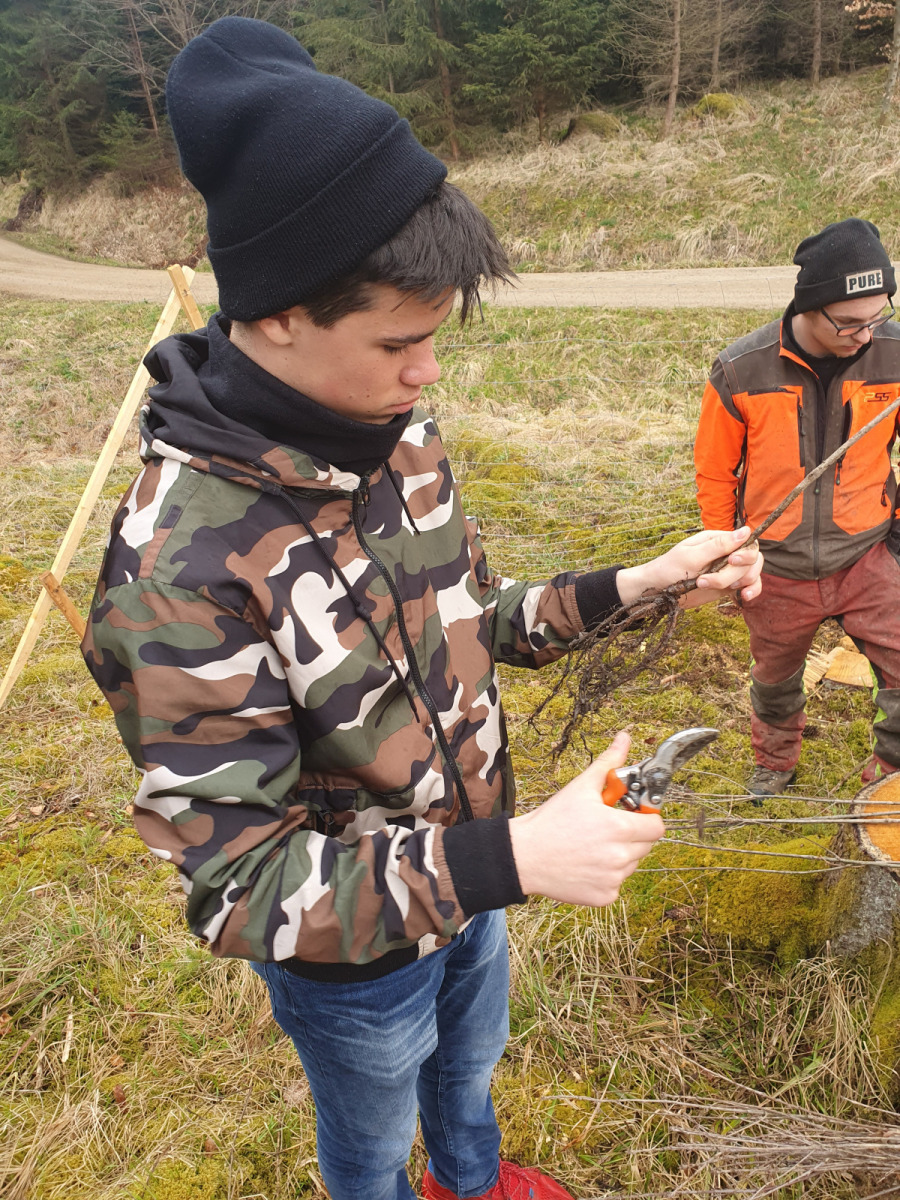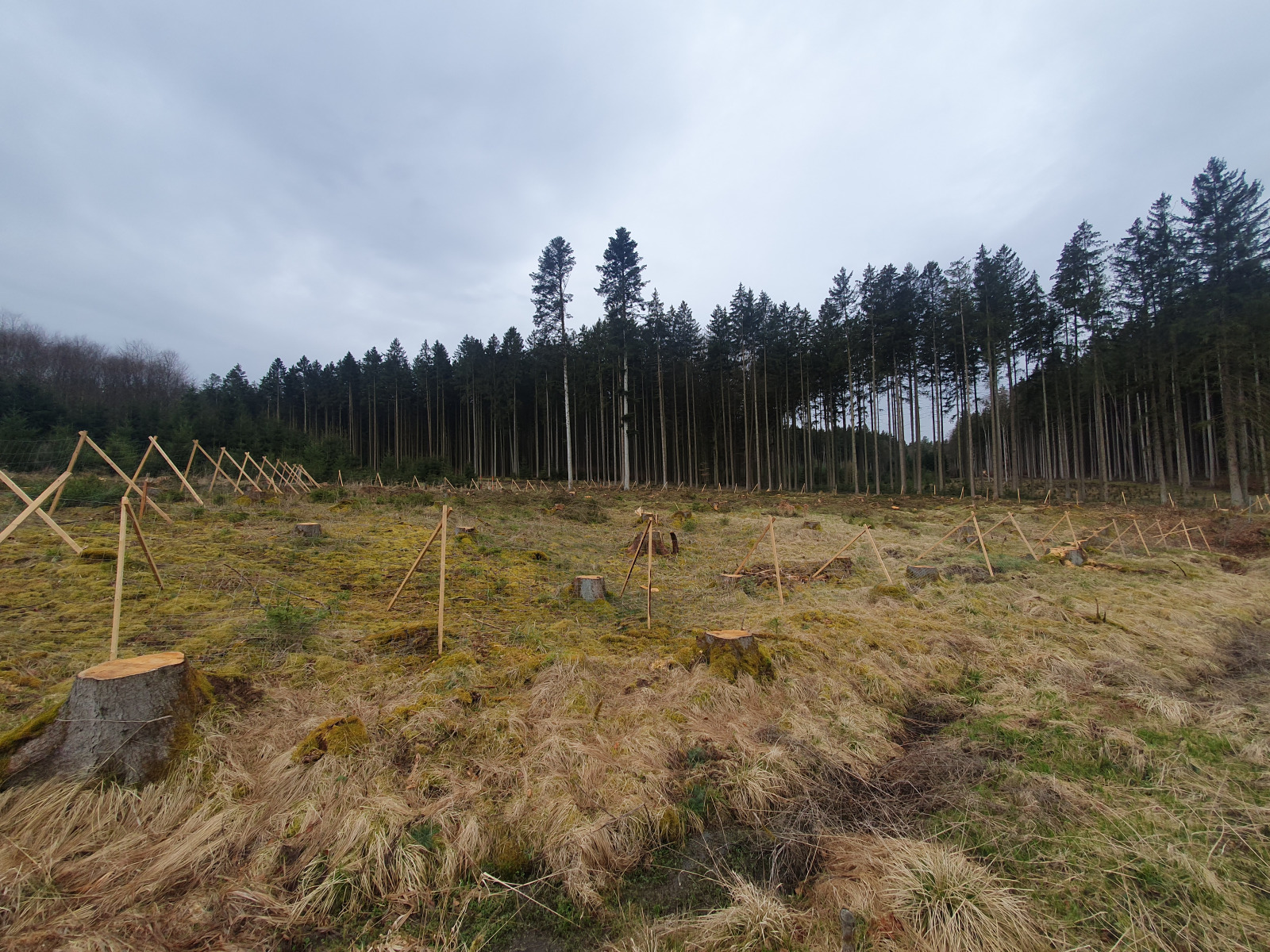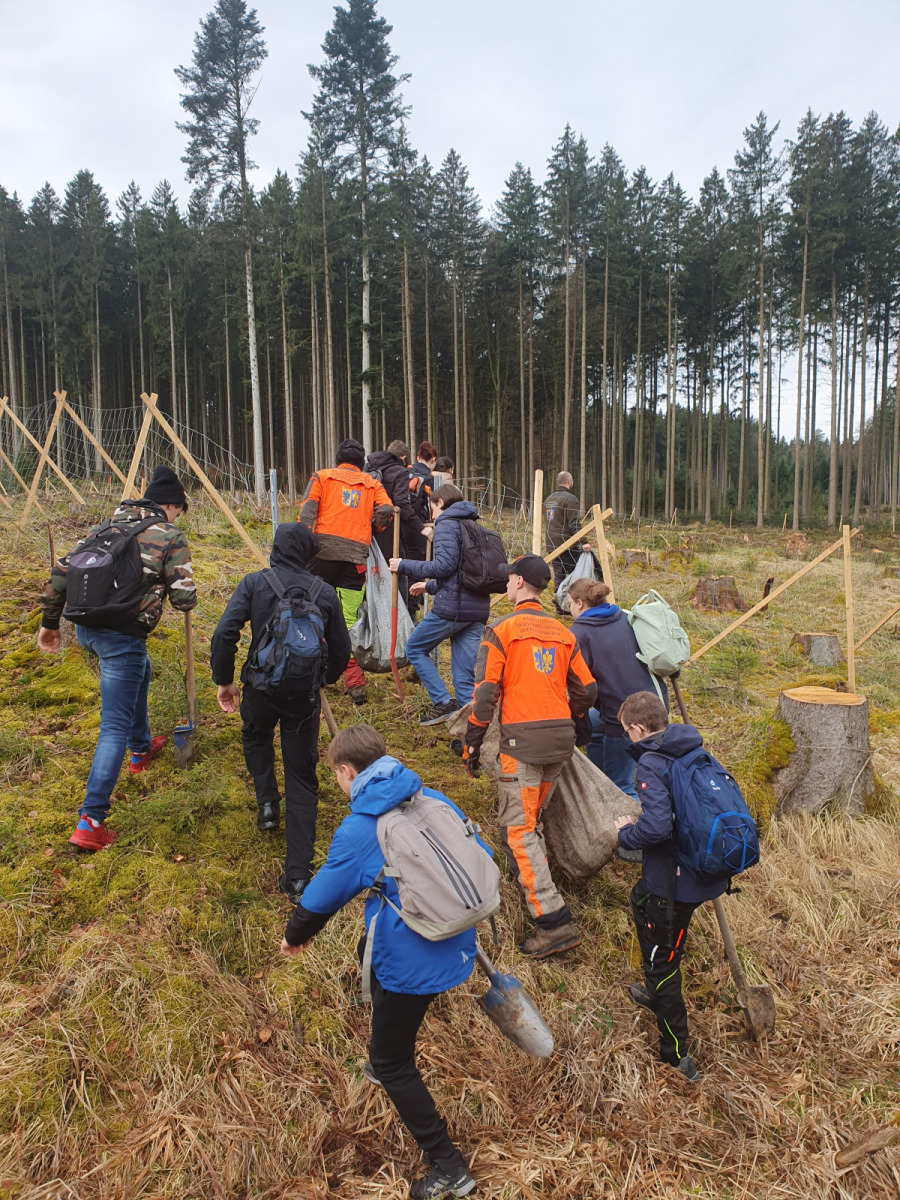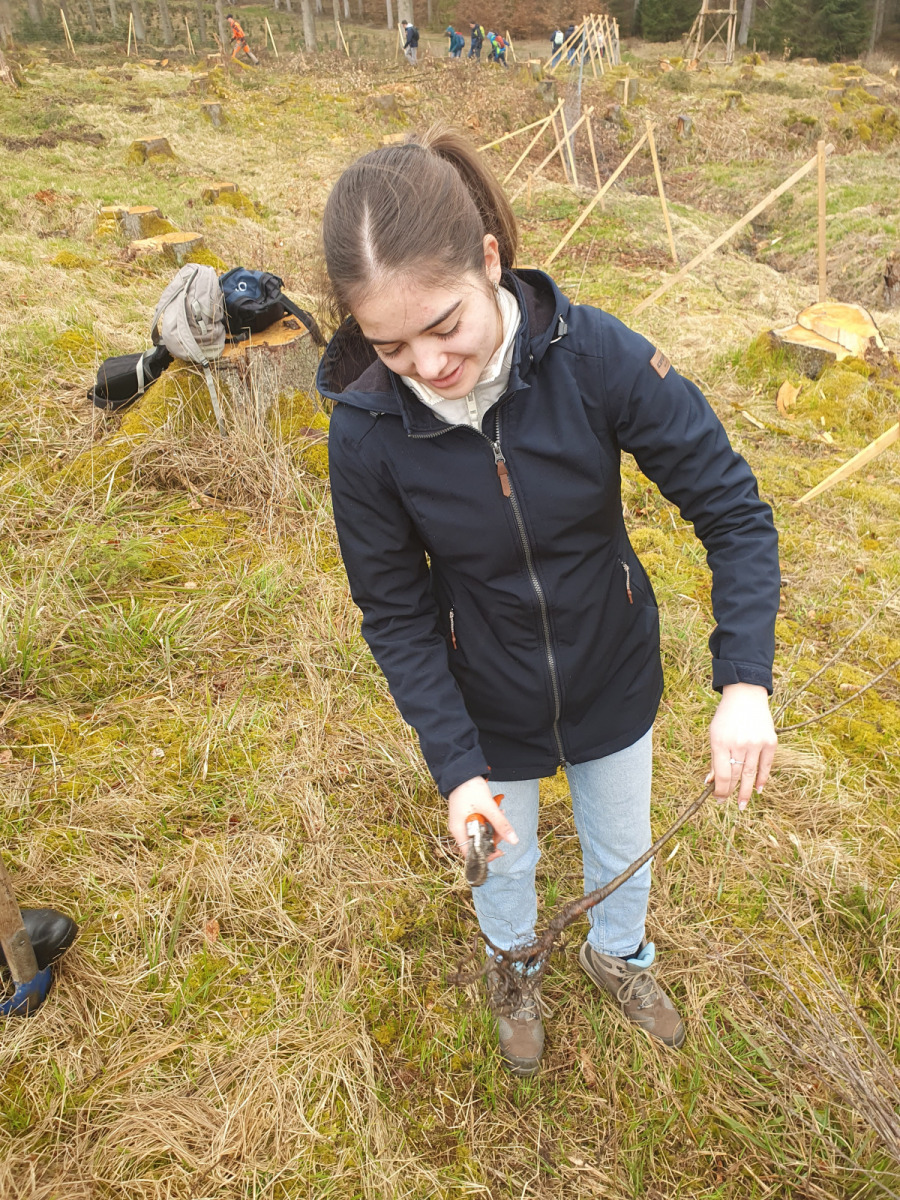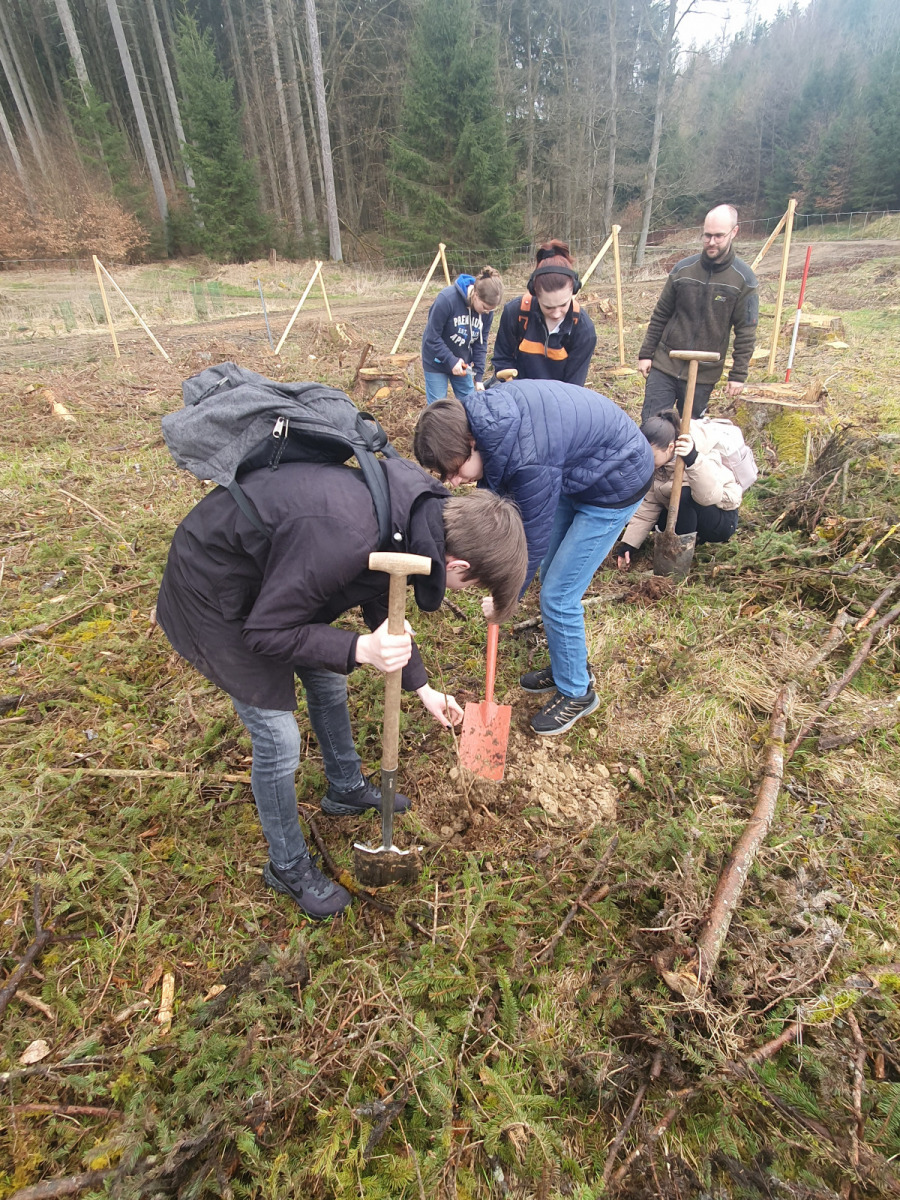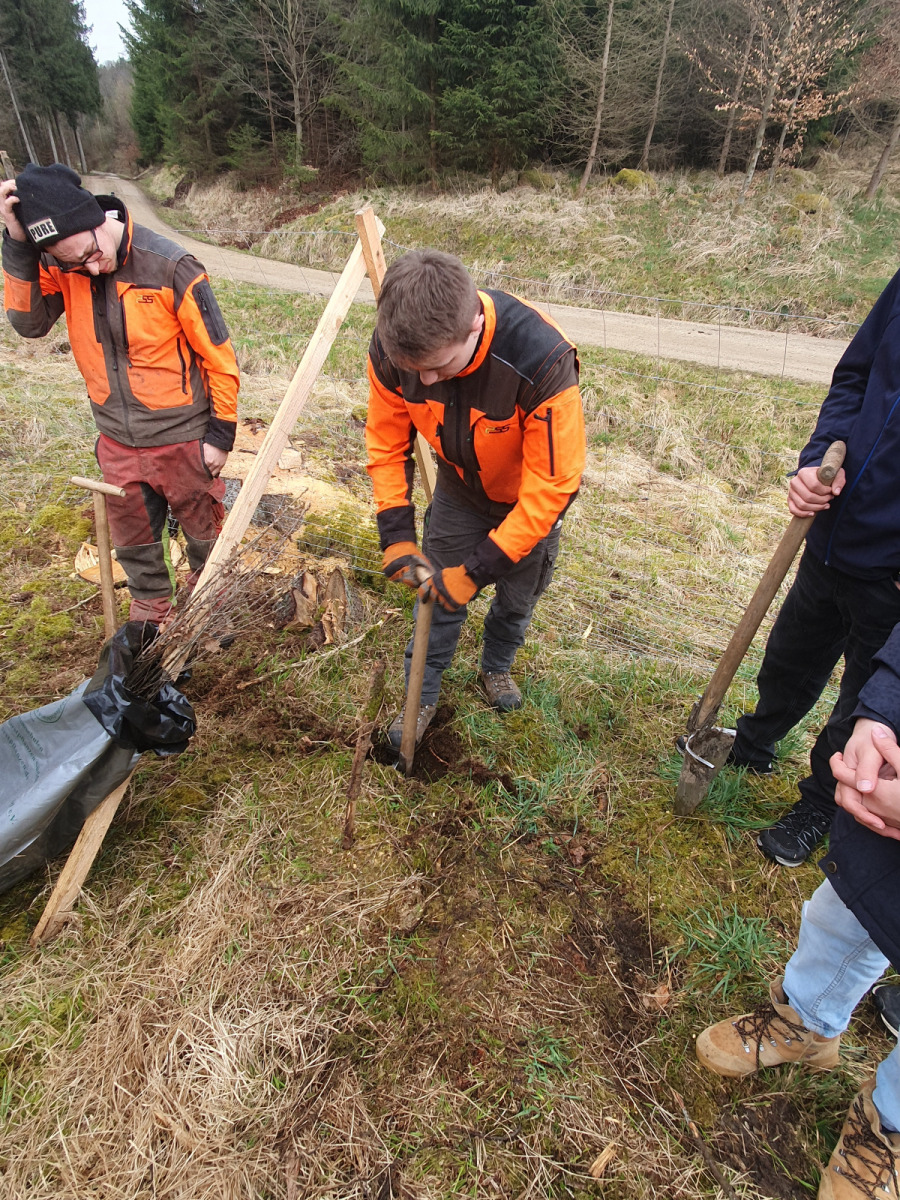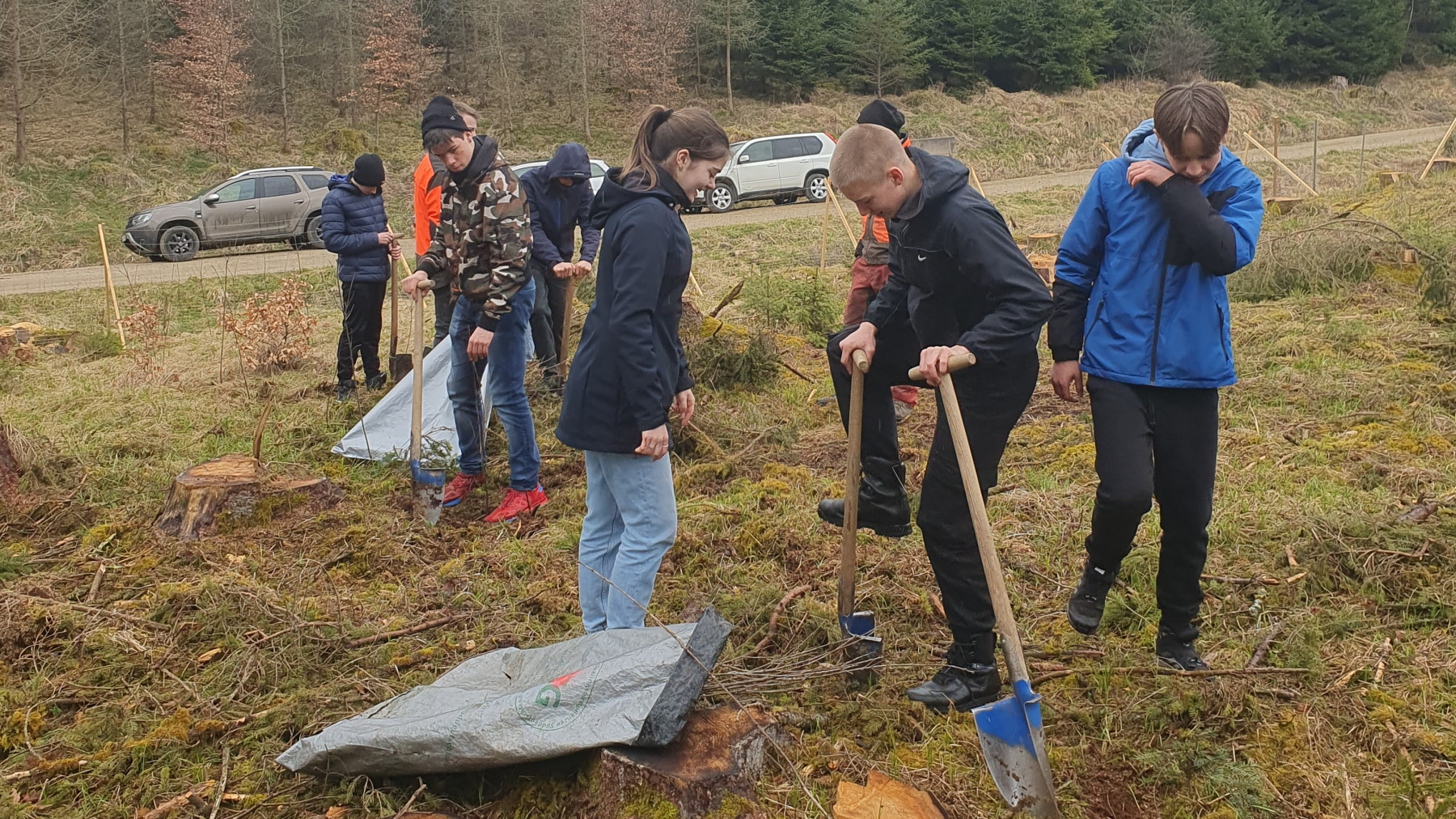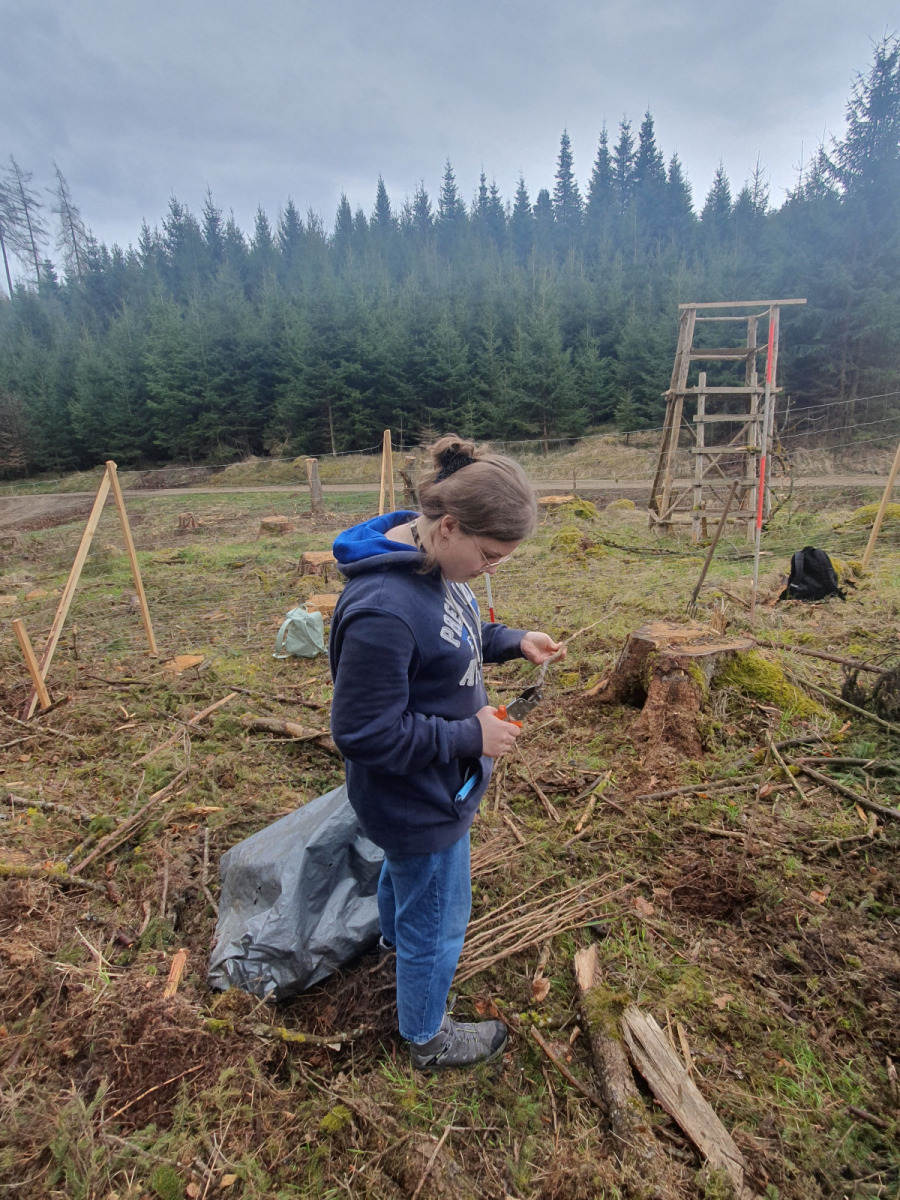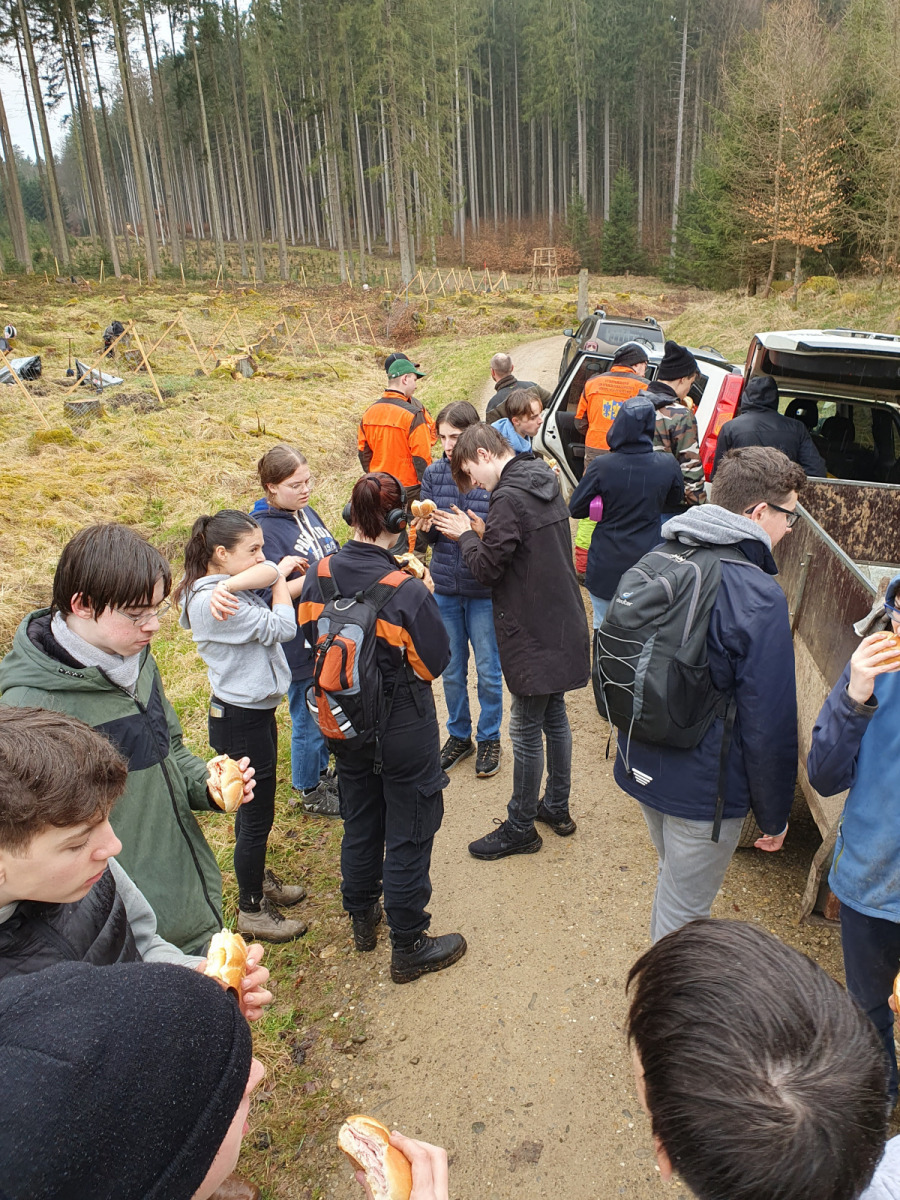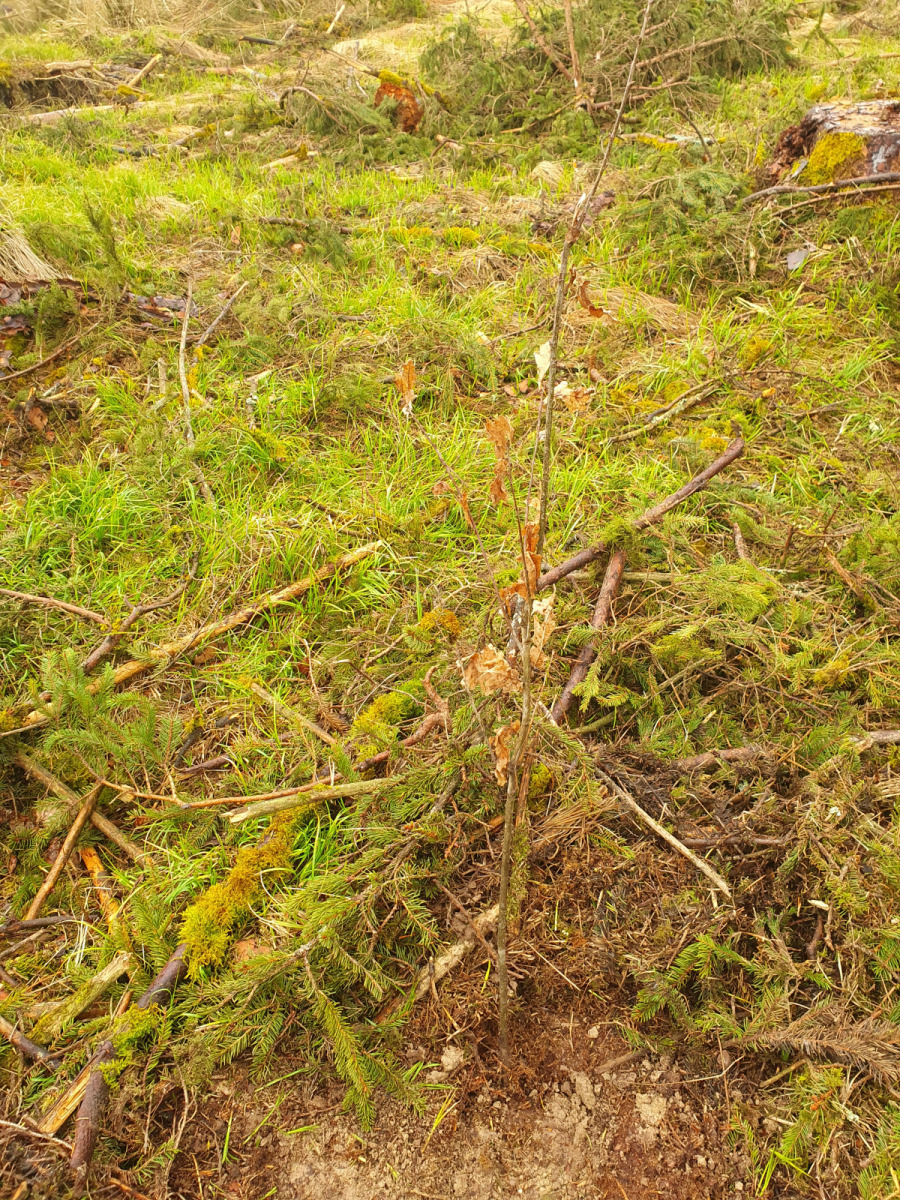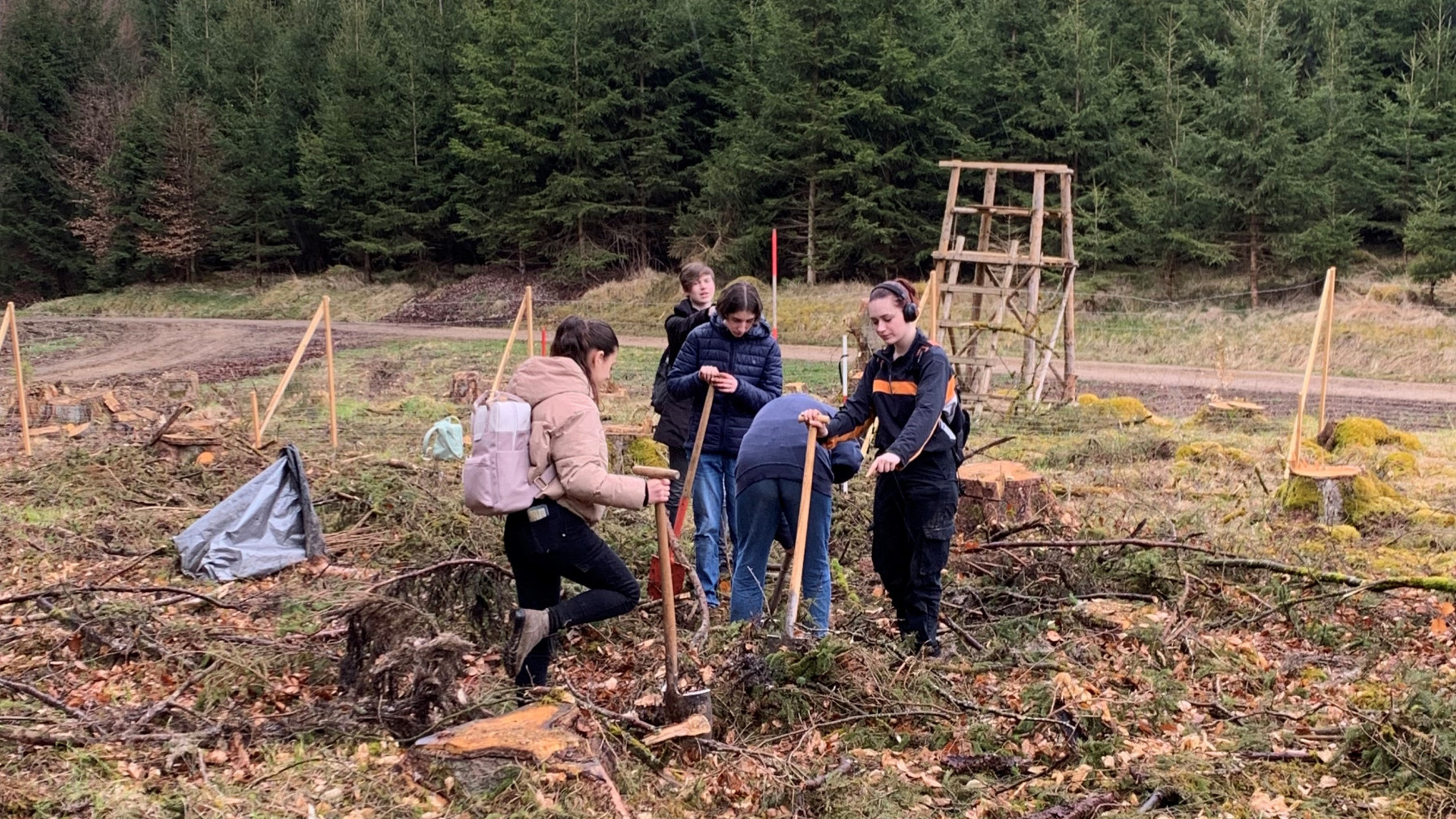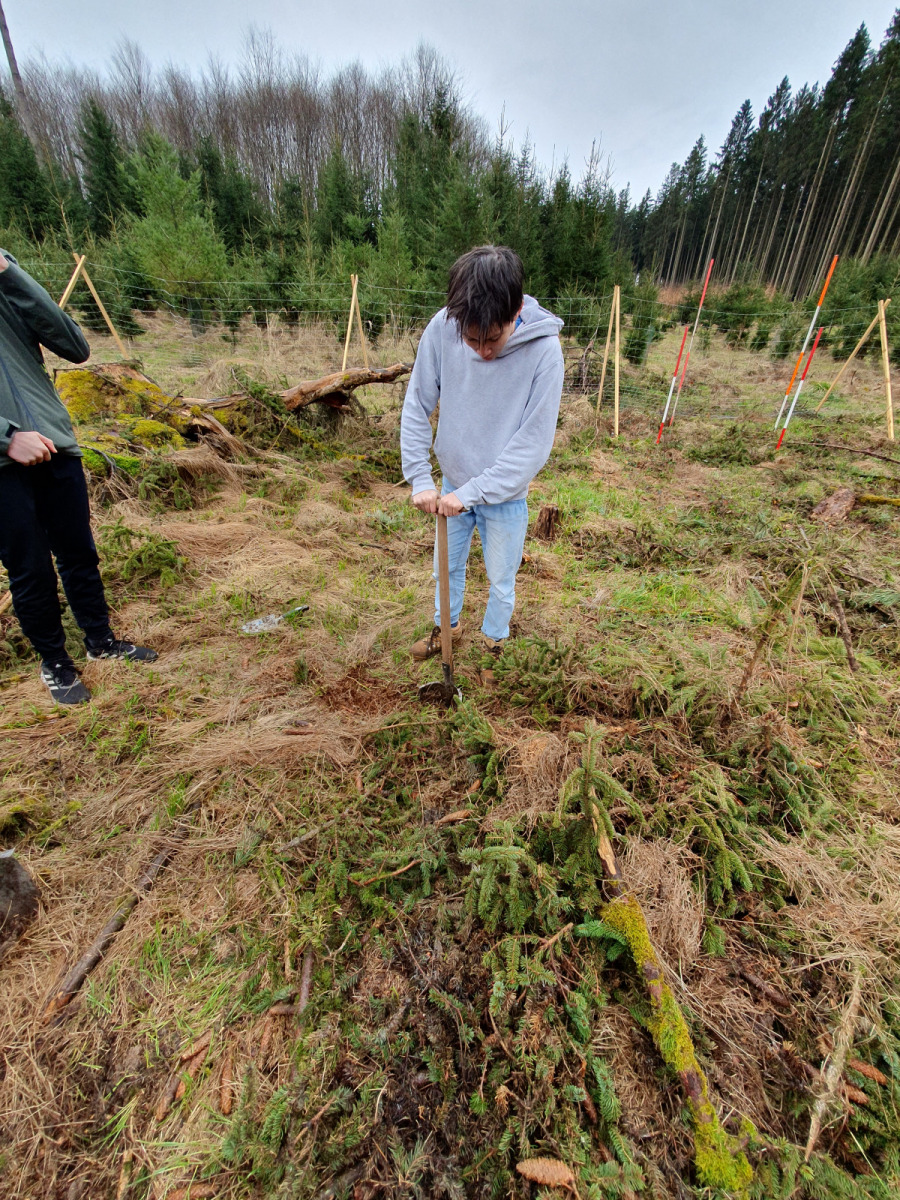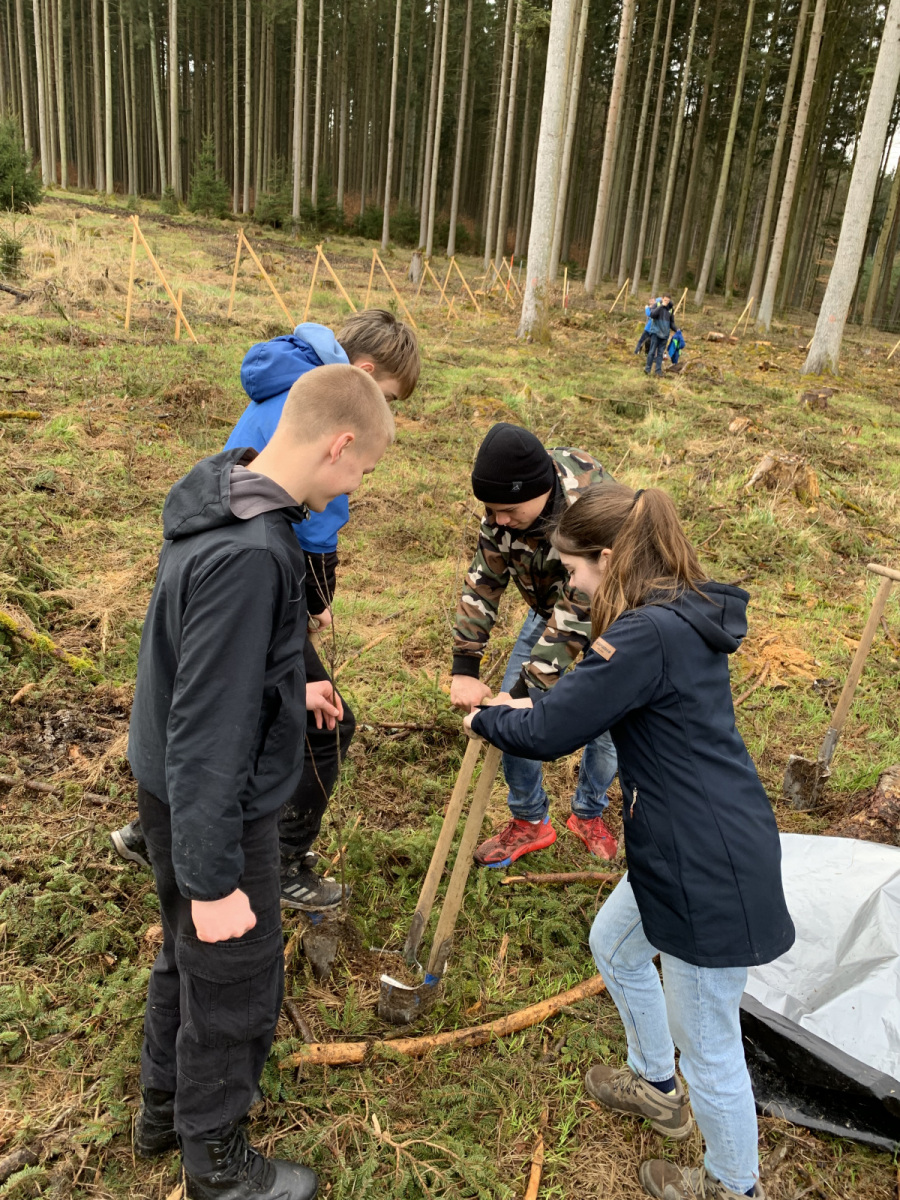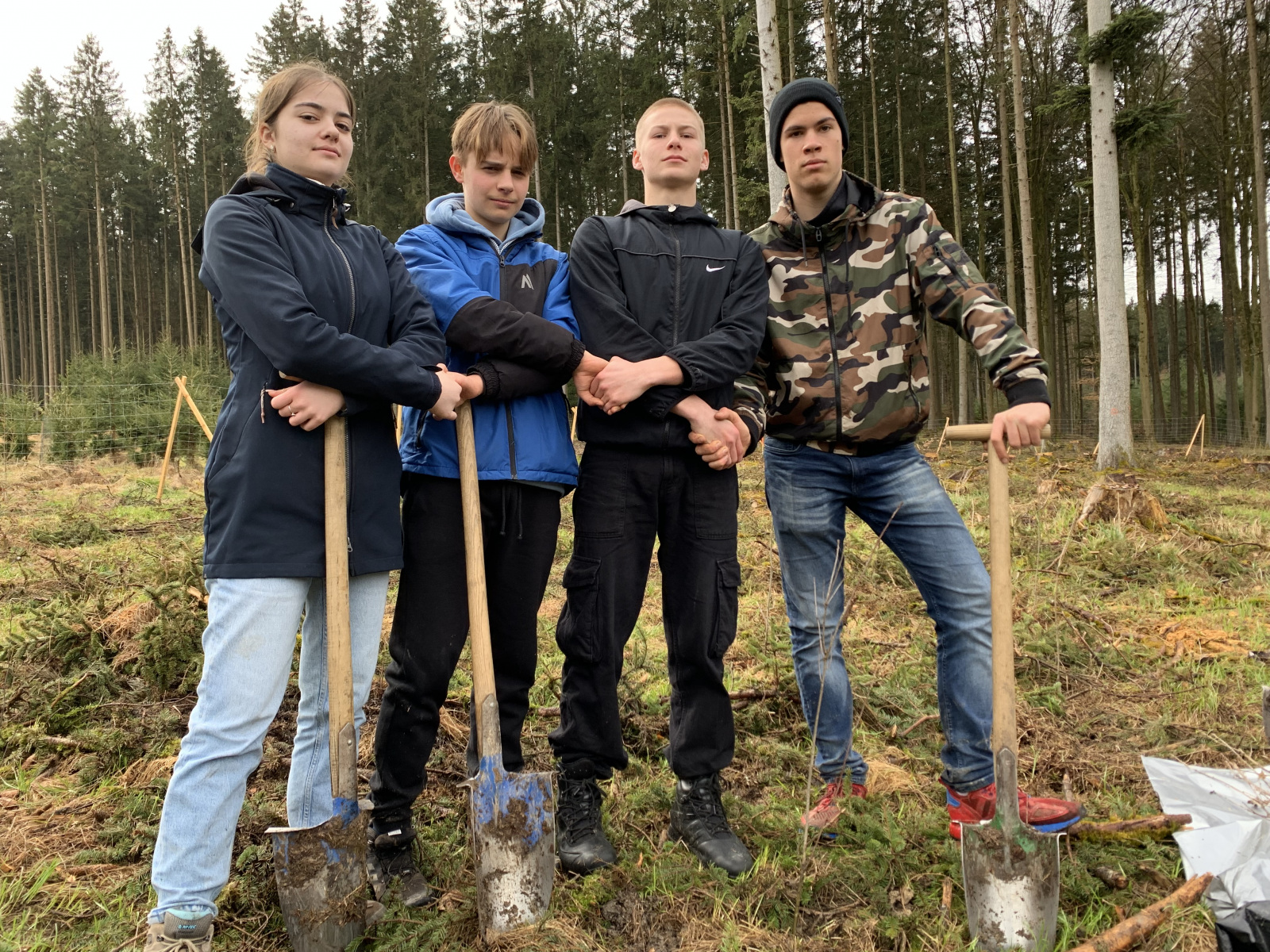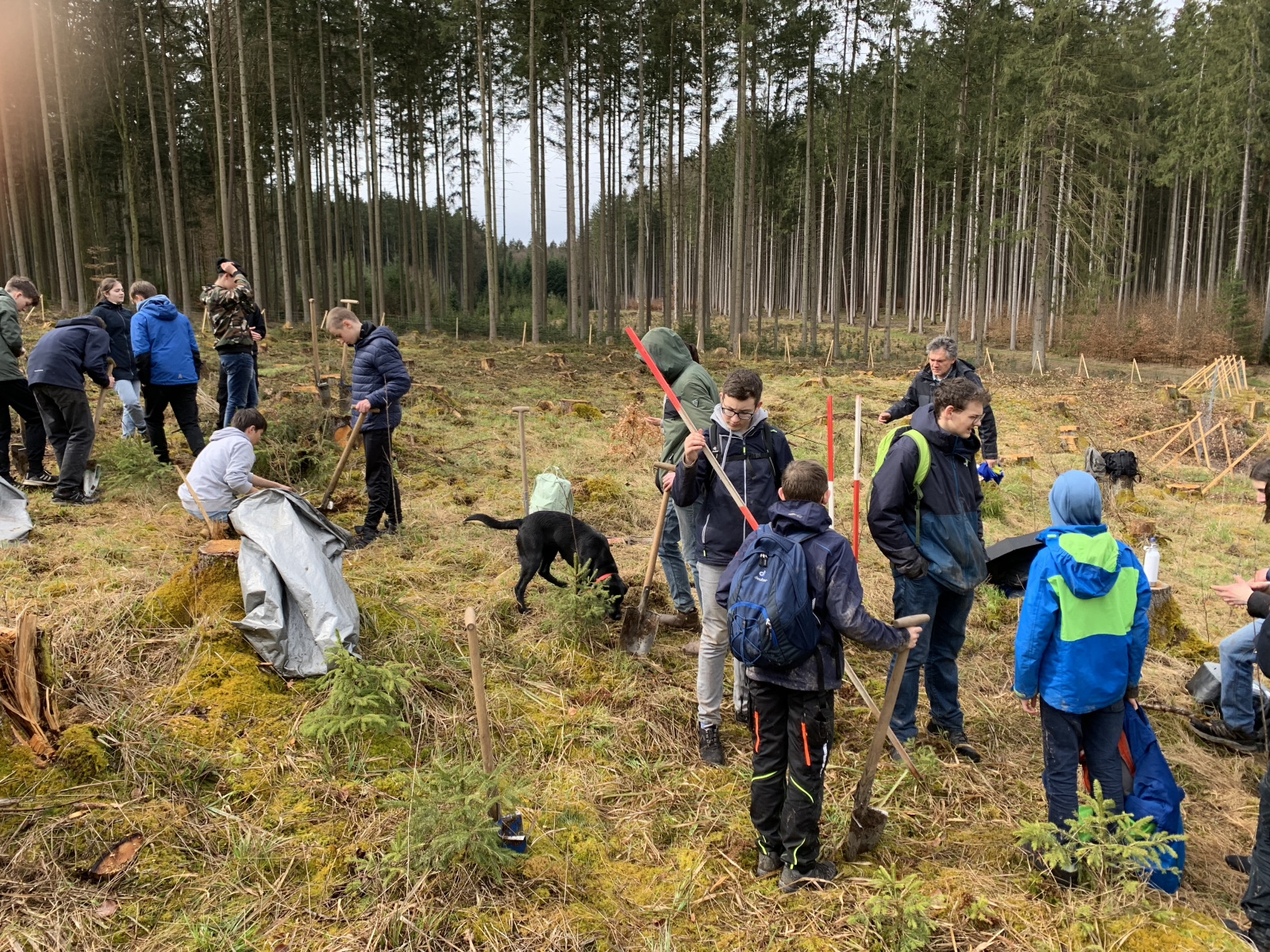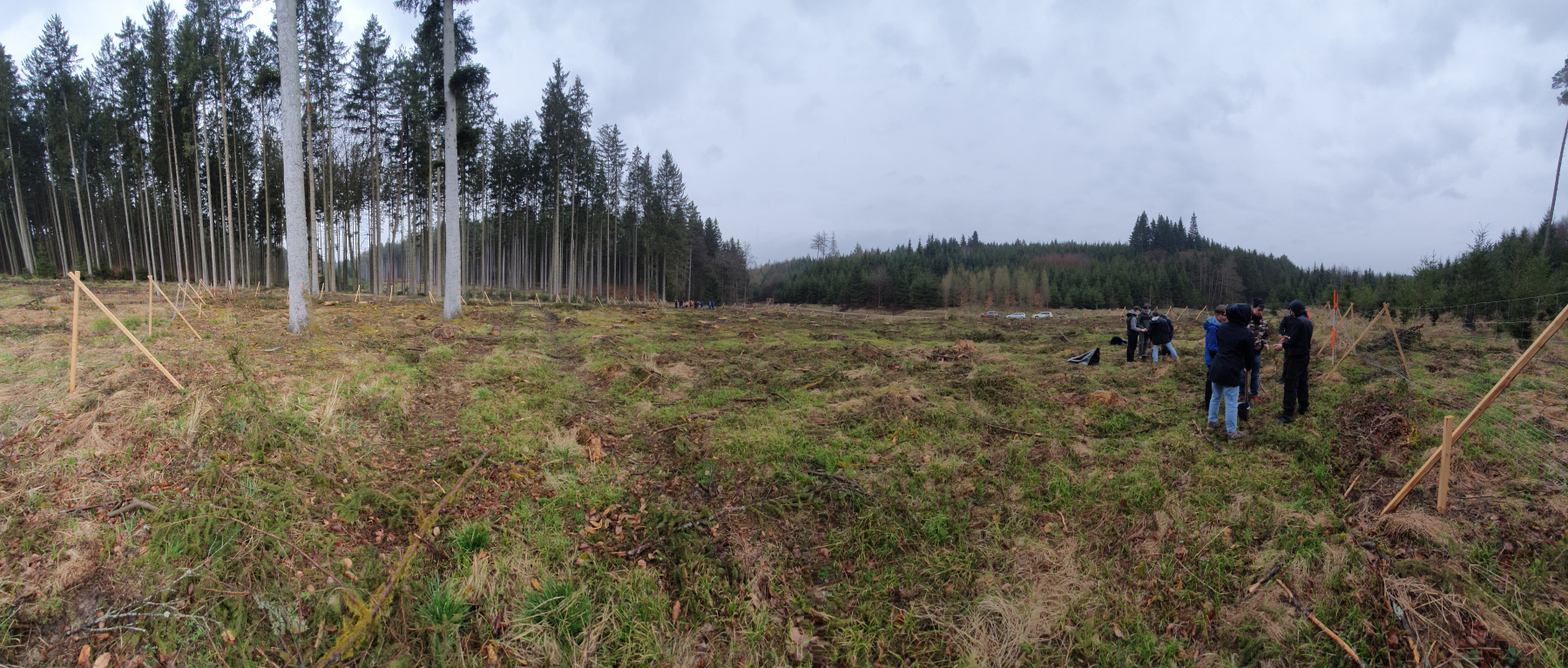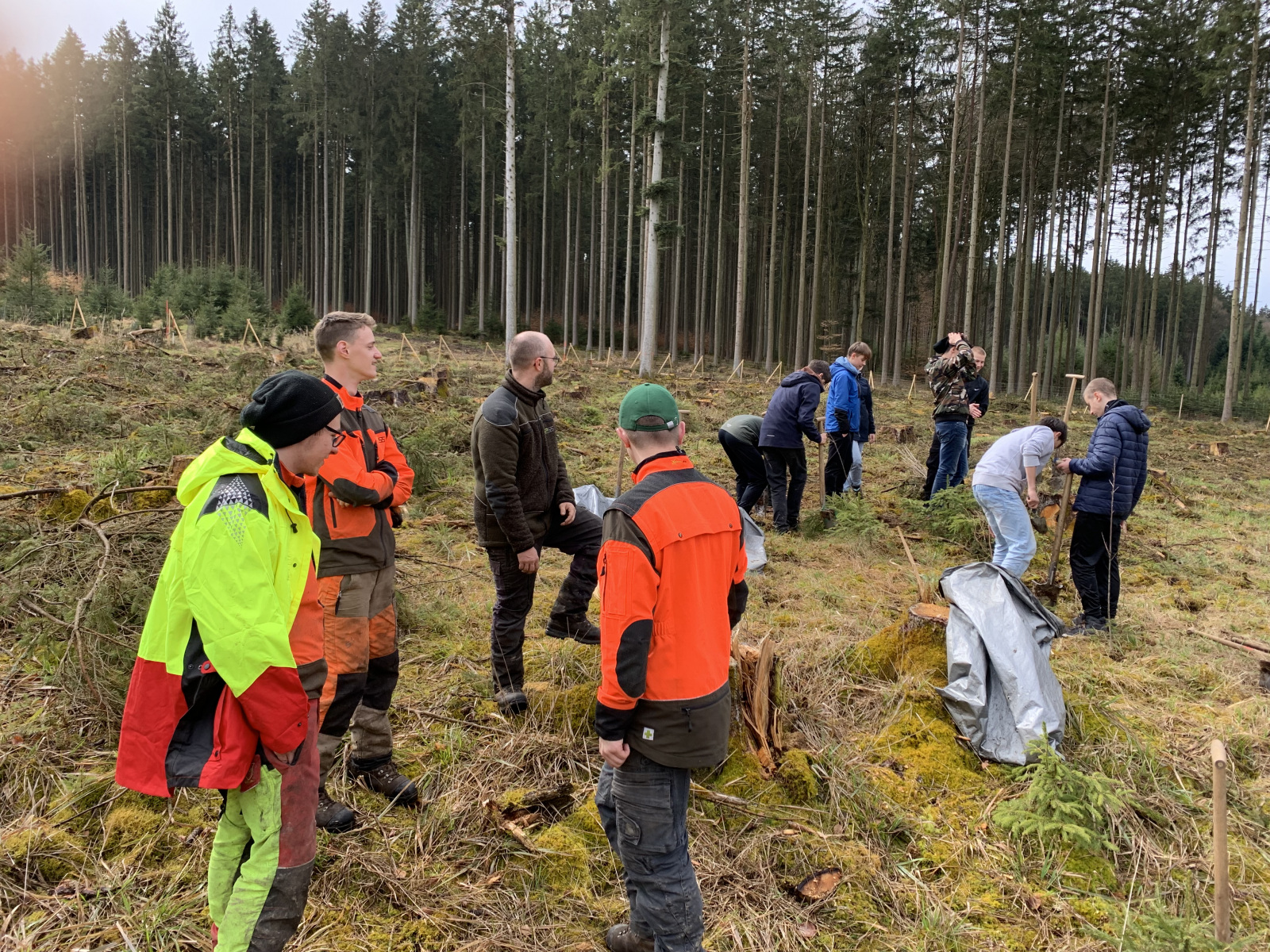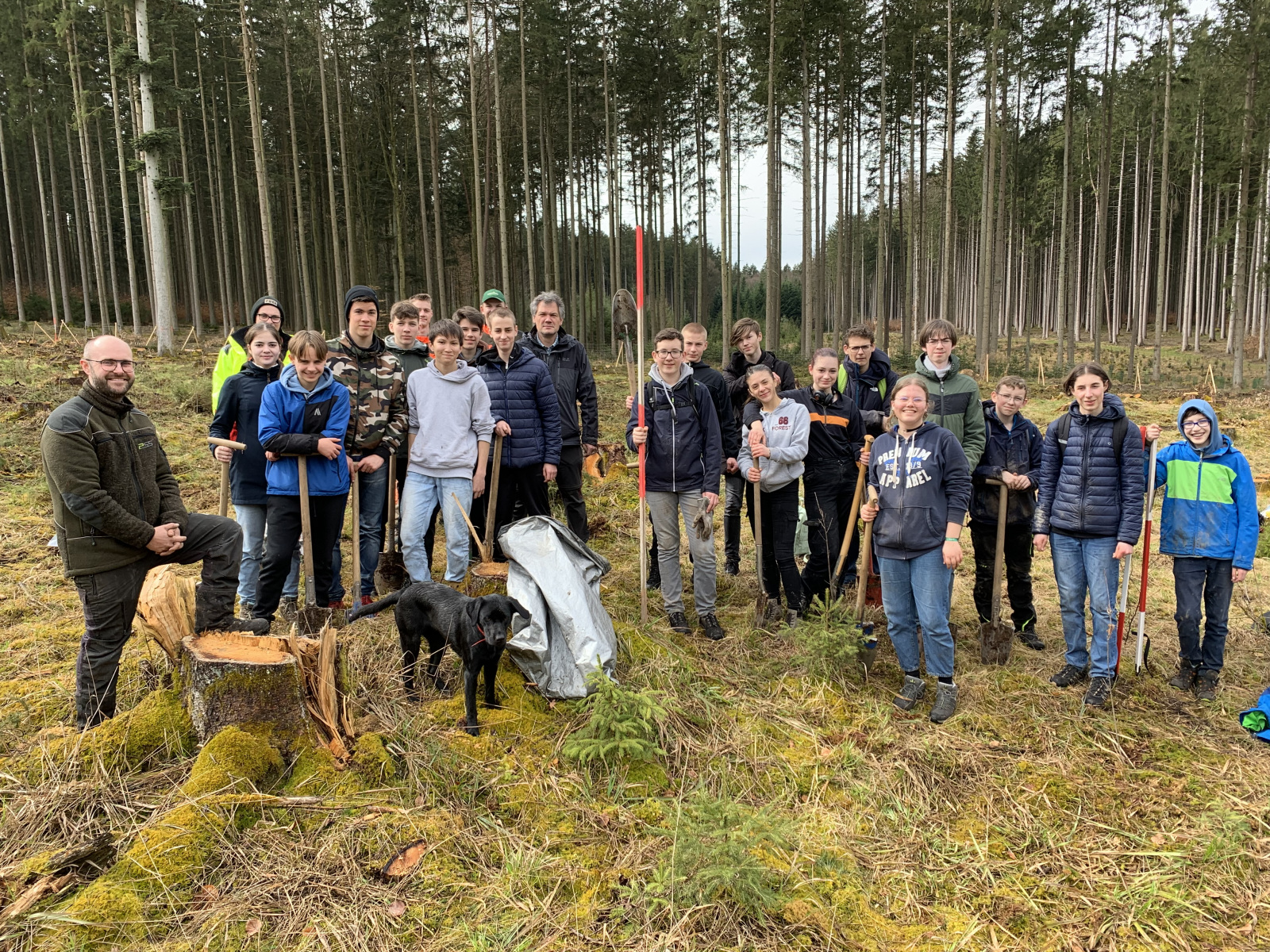According to the project title Jakob Fugger a historical European influencer – #economic #political #social #medial #ecological #footprint, the Erasmus+ project is also about the ecological footprint left by Jakob Fugger‚s activities in the field of mining, among others. Therefore, it was obvious to determine the ecological footprint of the project and especially of the travel activities of the project group of the Jakob Fugger Gymnasium to the different partner schools and then to plant the corresponding number of trees for CO2 compensation.
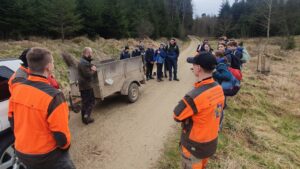 On 24.03.23 the Erasmus+ team together with five students from the environmental working club was able to reforest in the forest of the Fugger foundations near Emersacker. The forest engineer and district manager Johannes Mayer welcomed the team together with his staff and trainees in a piece of forest that had previously been infested by the bark beetle. Mr Mayer first explained what it means to compensate CO2 by planting trees and then went into great detail about the current problems of the forest due to climate change. Especially the drought of the last few years is also intensely felt in his district and changes in the area of the new planting carried out are then also derived from this, such as the mixture of traditional oak as a high-quality and sustainable CO2-rich wood supplier in combination with tree hazel, a tree species new to the region, which is supposed to be particularly resistant to the influences of climate change, but as Lukas appropriately summarised, CO2 compensation is much more than „digging holes and sticking trees in“.
On 24.03.23 the Erasmus+ team together with five students from the environmental working club was able to reforest in the forest of the Fugger foundations near Emersacker. The forest engineer and district manager Johannes Mayer welcomed the team together with his staff and trainees in a piece of forest that had previously been infested by the bark beetle. Mr Mayer first explained what it means to compensate CO2 by planting trees and then went into great detail about the current problems of the forest due to climate change. Especially the drought of the last few years is also intensely felt in his district and changes in the area of the new planting carried out are then also derived from this, such as the mixture of traditional oak as a high-quality and sustainable CO2-rich wood supplier in combination with tree hazel, a tree species new to the region, which is supposed to be particularly resistant to the influences of climate change, but as Lukas appropriately summarised, CO2 compensation is much more than „digging holes and sticking trees in“.
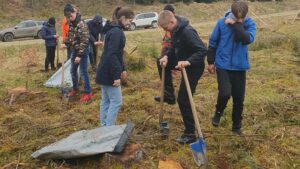 After this theoretical input, it was time for practice in small groups. Mr. Mayer’s team showed and explained what preparatory work has to be done, how the planting holes have to be dug and, above all, what has to be taken into account when planting the trees so that they can actually grow well. For example, the roots of the trees have to be cut and care has to be taken that these roots are not bent during planting. Furthermore, the „plucking test“ must be used to test whether the tree is well anchored in the ground.
After this theoretical input, it was time for practice in small groups. Mr. Mayer’s team showed and explained what preparatory work has to be done, how the planting holes have to be dug and, above all, what has to be taken into account when planting the trees so that they can actually grow well. For example, the roots of the trees have to be cut and care has to be taken that these roots are not bent during planting. Furthermore, the „plucking test“ must be used to test whether the tree is well anchored in the ground.
After two hours of hard work, partly in the pouring rain, Mr Mayer surprised the group with a snack. Thus fortified, the group continued and in the end can be more than proud of the 350 trees planted. According to Mr. Mayer, this is approximately equivalent to 4.4 tonnes of CO2. Burcu summed up the morning as follows: „I learned how mixed forests are formed, how the correct planting affects the whole life of the tree and which soils are suitable or unsuitable. I also found planting in the group was very nice and that despite the rain!“.
A very special thank you goes to the Fugger Foundations and the team around Mr Mayer who made this experience possible for the Erasmus+ team and as Jana summarises: „For me the forest excursion was great overall because we learned a lot of new things and it was a lot of fun.“
And at this link you can watch the newly planted trees grow, at least whenever a new satellite image is added, or you can simply visit the new forest as part of a CO2-neutral hike or bike ride…
